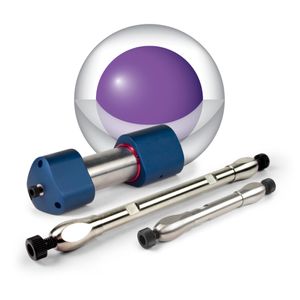Neuroscience Webinars
Learn from the latest webinars about newly released neuroscience research and advances in experimental techniques. Topics include research news in neuroscience, neurology, psychology, brain science and cognitive sciences.
Show More
-
AUG 23, 2023 | 10:00 AMC9orf72 repeat expansions cause inherited amyotrophic lateral sclerosis/frontotemporal dementia (ALS/FTD) and result in both loss of C9orf72 protein expression and production of potentially...
-
OCT 10, 2024 | 9:00 AMIn this webinar, we will discuss the technique of critical point drying for the preparation of biological and materials science samples for electron microscopy. As hydrated samples cannot ge...
-
NOV 04, 2021 | 8:00 AMDate: November 4, 2021 Time: 8:00am (PDT), 11:00am (EDT) The promise of tissue clearing techniques in combination with 3D-immunofluorescence (IF) microscopy is revolutionary. Complex biologi...
-
Join our webinar to discover how automated sample preparation can free your lab from the time-consuming, costly, and complex manual workflows in proteomics. In the ever-evolving field of pro...
SEP 29, 2022 | 7:00 AM
Date: September 29, 2022 Time: 7:00am (PDT), 10:00am (EDT), 4:00pm (CEST) Development and evolution are controlled, to a large degree, by regions of genomic DNA called enhancers that encode...
SEP 21, 2022 | 10:00 AM
Date: September 21, 2022 Time: 10:00am (PDT), 1:00pm (EDT), 7:00pm (CEST) This talk aims to describe a popular workflow that profiles specific brain cell types in healthy and diseased post-m...
SEP 18, 2024 | 11:00 AM
Translational research strives to identify, verify, and validate biomarker candidates that can be used in clinical settings to collectively stratify biology. With the recent introduction of...
NOV 04, 2021 | 8:00 AM
Date: November 04, 2021 Time: 8:00am (PDT), 11:00am (EDT) 222 Webinars will be available for unlimited on-demand viewing after live event....
NanoString has started an ambitious project called the "Spatial Organ Atlas." The goal of this initiative is to map the architecture of tissues with spatially resolved whole transc...
JUN 22, 2022 | 11:00 AM
Date: June 22, 2022 Time: 11:00am (PDT), 2:00pm (EDT), 8:00pm (CEST) ChipCytometry™ is a technique for collecting and analyzing highly multiplexed spatial cytometry data that has been...
Stimulation of human visual cortex is known to elicit visual perceptions that could potentially be used for restoring artificial vision to individuals who have lost their vision due to non-co...
The locomotion of humans and other animals requires a seamless flow of information from sensory modalities all the way to the motor periphery. As such, locomotion is an excellent system for...































































